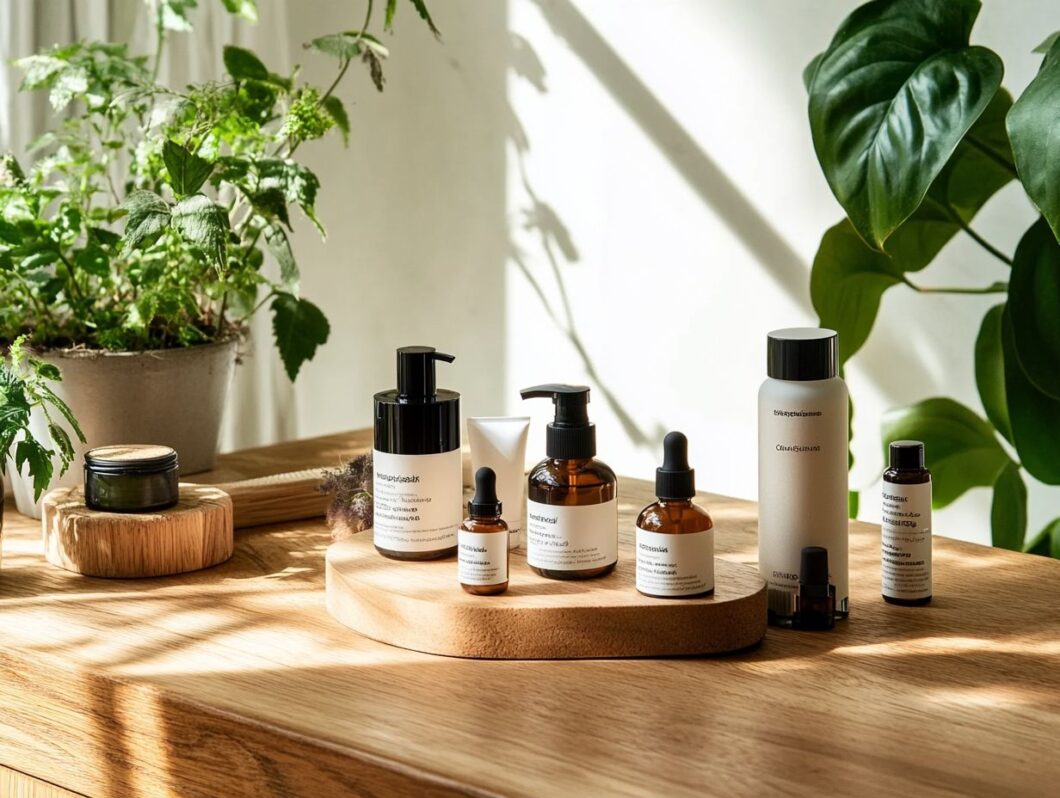Acne-prone skin can often feel like a challenging situation, but gaining an understanding of its causes and characteristics is the first step toward effective management.
This article delves into the essentials of a tailored skincare routine specifically designed for acne-prone skin. It covers everything from identifying the right ingredients to developing morning and evening regimens, providing comprehensive guidance to optimize skincare efforts.
Furthermore, it offers valuable insights into lifestyle choices and highlights common mistakes to avoid. The objective is to transform one’s skincare approach and ultimately embrace clearer, healthier skin.
Key Takeaways:
Understanding Acne-Prone Skin
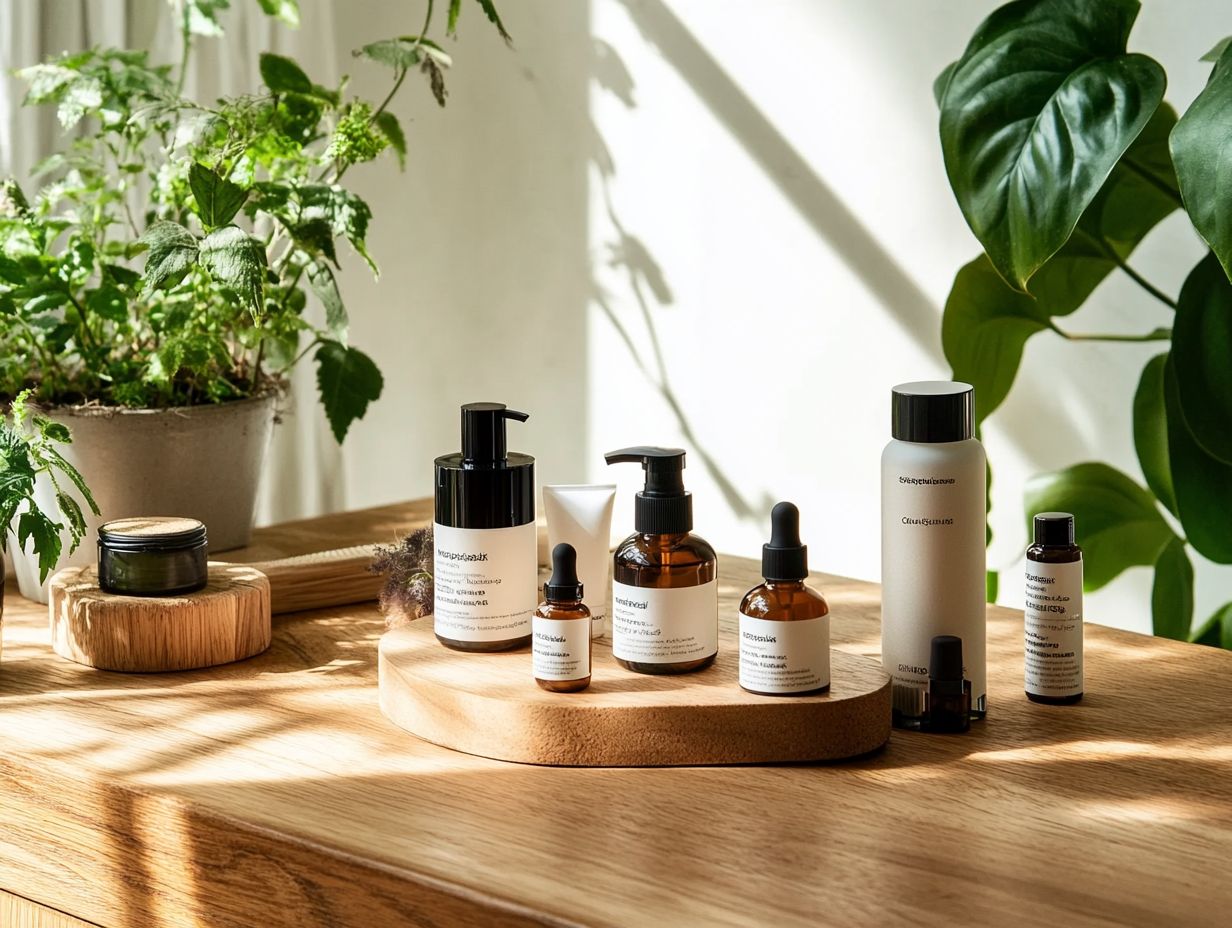
Understanding acne-prone skin is essential for anyone managing adult acne, as its distinct characteristics can greatly influence my skincare routine and overall skin health.
I often observe that adult acne typically presents as inflammatory breakouts, which can be aggravated by hormonal fluctuations, lifestyle choices, and the presence of acne-causing bacteria.
By recognizing the causes and effective management strategies for this type of skin, I can guide my approach to treatments, ultimately achieving a clearer complexion and enhancing my skin barrier functionality.
Furthermore, being aware of the symptoms and contributing factors to acne formation is vital for developing a comprehensive skincare strategy that prioritizes my skin health.
Causes and Characteristics of Acne-Prone Skin
The causes and characteristics of acne-prone skin are complex, involving hormonal imbalances, increased oil production, and the proliferation of acne-causing bacteria.
Genetics significantly influence this condition, as individuals with a family history of acne may be more vulnerable. Additionally, environmental factors such as pollution and humidity can exacerbate these symptoms by compromising the skin barrier, which leads to heightened inflammation and breakouts.
Common symptoms I observe include pimples, blackheads, and cysts. These not only impact facial aesthetics but can also serve as indicators of underlying skin health issues. A compromised skin barrier often results in increased sensitivity, greater irritation, and a reduced ability to retain moisture.
Therefore, it is essential to understand these interrelated factors to manage acne-prone skin effectively.
Creating a Skincare Routine
Creating a tailored skincare routine is essential for effectively managing my acne-prone skin, as it helps regulate oil production, enhance hydration, and support the skin barrier.
My skincare strategy incorporates products specifically designed for acne-prone skin, including gentle formulations that feature acne-fighting ingredients like salicylic acid and benzoyl peroxide.
By prioritizing a personalized skincare regimen, I can address acne management based on dermatologist recommendations and adapt my choices to meet my unique needs.
This approach not only aims to reduce acne symptoms but also promotes overall skin health and resilience.
Important Steps for Acne-Prone Skin
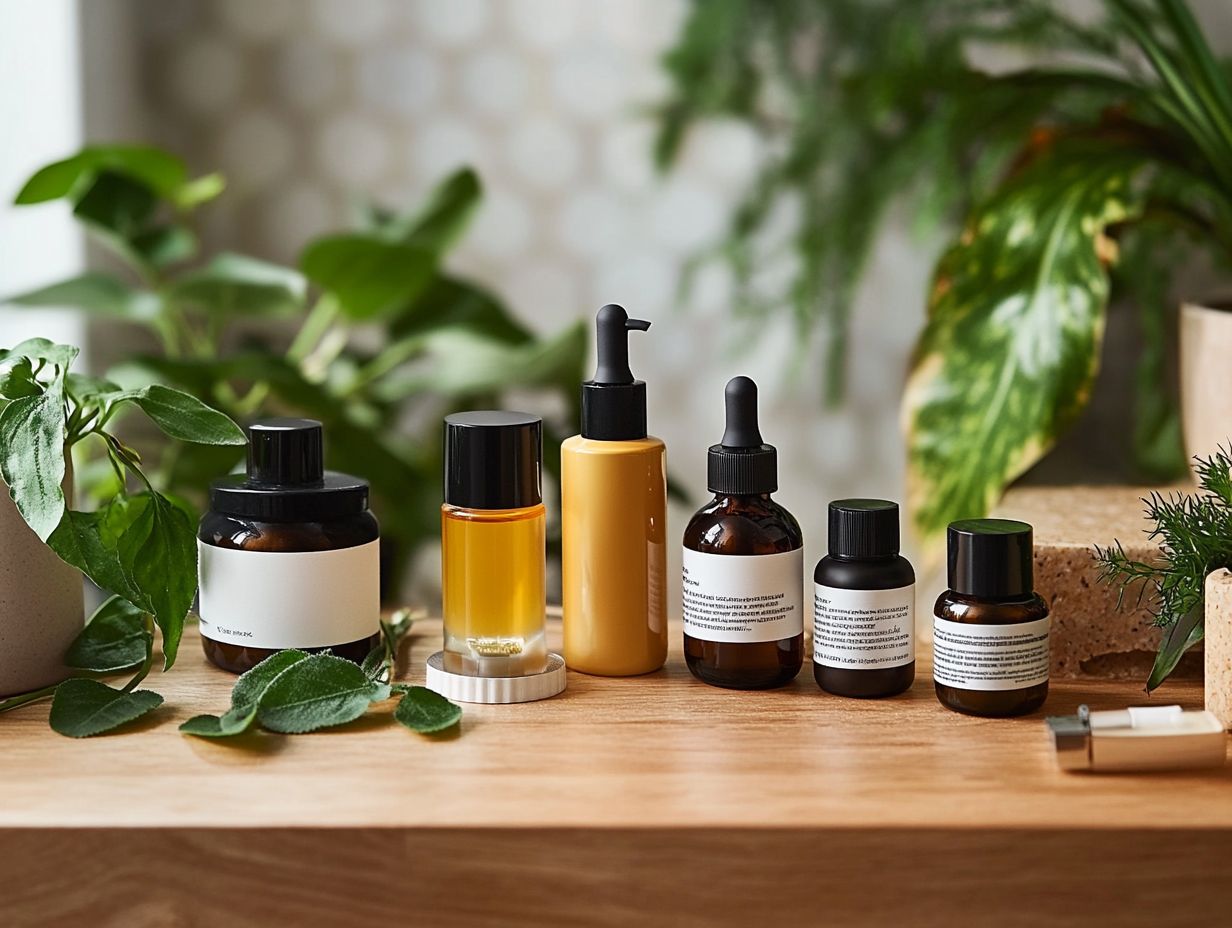
For managing acne-prone skin, I prioritize a consistent daily skincare routine that emphasizes cleansing, treatment, and protection.
I start with a gentle cleanser designed to remove excess oil and impurities without compromising the skin’s natural moisture barrier. After cleansing, I apply topical medications, such as benzoyl peroxide or salicylic acid, which are crucial for effectively addressing blemishes and preventing future breakouts.
In addition, I incorporate a lightweight, oil-free moisturizer to keep my skin hydrated while ensuring that it remains breathable and does not clog pores. Using a broad-spectrum sunscreen with SPF is essential for protecting my skin from harmful UV rays, particularly since some acne treatments can increase sun sensitivity.
For those persistent spots, I utilize targeted acne treatments containing ingredients like tea tree oil or hydrogel, which provide significant spot-reducing benefits. By following these steps diligently, I can maintain a clearer and healthier complexion.
Choosing the Right Products
Selecting the appropriate products is a vital aspect of skincare for adults dealing with acne, as using the wrong formulations can worsen skin issues and impede progress.
In my approach to choosing skincare products, I prioritize those containing acne-fighting ingredients such as benzoyl peroxide and salicylic acid. I also recognize the significance of a non-comedogenic moisturizer to ensure that my skin remains hydrated without clogging pores.
Furthermore, I consider incorporating anti-aging products that address signs of aging while being mindful not to trigger breakouts. Aligning my product choices with my individual skin needs and conditions is essential for achieving optimal results.
Ingredients to Look For and Avoid
When selecting skincare products, I find it essential to understand which ingredients to seek out and which ones to avoid, especially for those with acne-prone skin.
Having a grasp of the role that key ingredients play can significantly impact the effectiveness of my skincare routine.
For instance, salicylic acid is well-regarded for its ability to penetrate pores and exfoliate dead skin cells, helping to prevent the clogged pores that often lead to breakouts. Similarly, benzoyl peroxide is effective in combating acne-causing bacteria and reducing inflammation, making it a valuable component of any acne-fighting regimen.
“`html
It is also crucial to balance these potent ingredients with gentler formulations that support the skin’s barrier. Incorporating hydrating components, such as hyaluronic acid or glycerin, helps prevent dryness, which can exacerbate acne. For a comprehensive guide, check out Building a Skincare Routine for Acne-Prone Skin.
“`
On the flip side, I remain cautious about harsh additives like alcohol, synthetic fragrances, and certain oils, as these can trigger irritation and worsen acne. This reinforces the importance of carefully reading ingredient labels to make informed choices.
Morning Skincare Routine
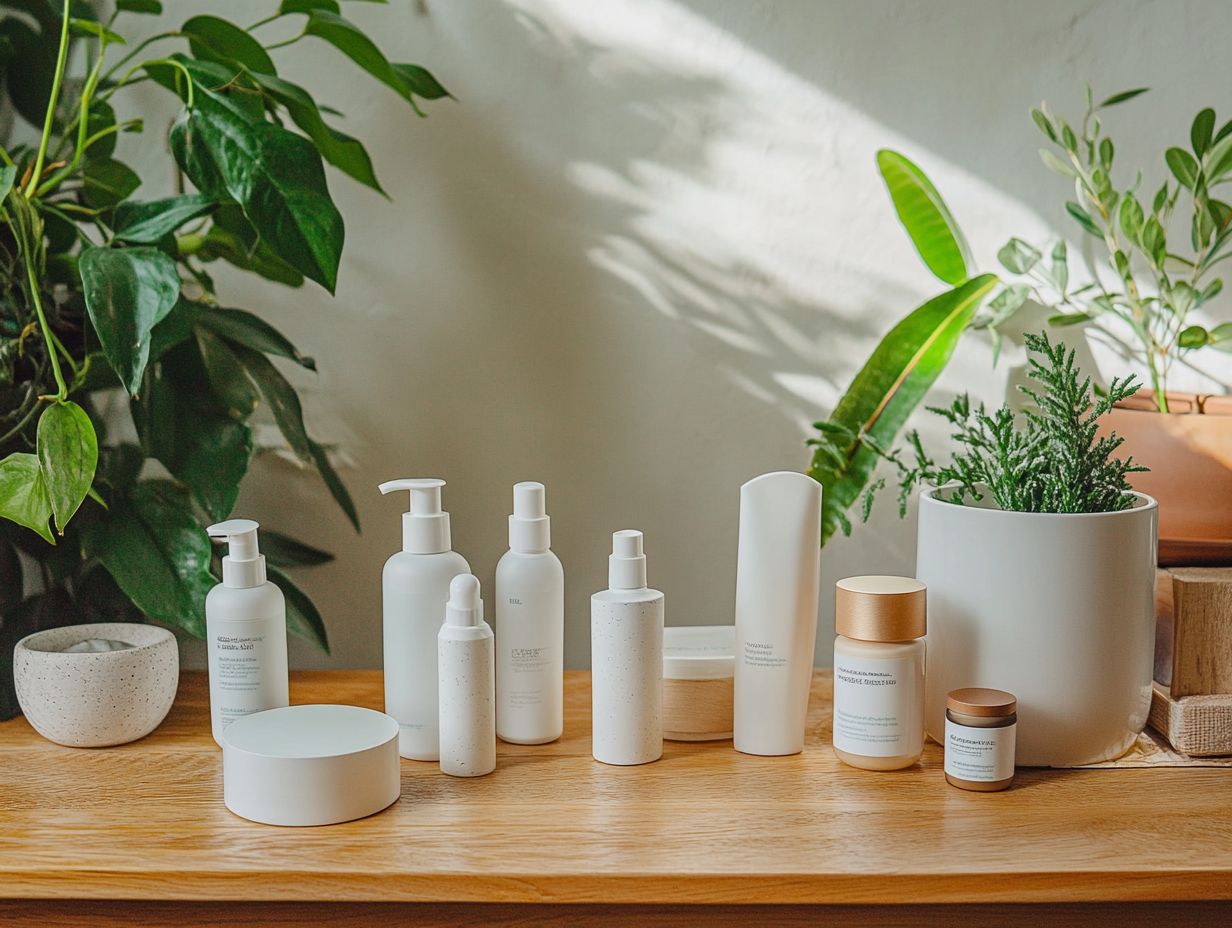
I find that a well-structured morning skincare routine is essential for individuals with acne-prone skin, as it establishes the foundation for a day dedicated to skin health and protection against environmental aggressors.
I begin my routine with a gentle acne cleanser to remove any impurities that have accumulated overnight. Next, I apply a lightweight, non-comedogenic moisturizer to ensure my skin remains adequately hydrated.
The final step involves using a broad-spectrum moisturizing sunscreen, which is crucial for protecting the skin barrier and preventing further irritation or damage.
Step-by-Step Guide for Starting Your Day
I follow a step-by-step guide for starting my day with a morning skincare routine specifically designed for acne-prone skin, incorporating several key practices to ensure a clear and healthy complexion.
By adhering to a well-structured regimen, I can effectively minimize breakouts while promoting overall skin vitality.
I begin my routine with a gentle cleanser that is specifically formulated for acne-prone skin, followed by a toner to balance my skin’s pH levels.
Next, I use an appropriate serum containing ingredients like salicylic acid or niacinamide, which target blemishes and help reduce inflammation.
After applying the serum, I find that a lightweight moisturizer is crucial to hydrate my skin without clogging pores. Lastly, I make sure to apply a broad-spectrum sunscreen to protect my skin from harmful UV rays, as these can exacerbate acne conditions and lead to long-term damage.
Each of these steps plays a significant role in maintaining my skin’s health and achieving a radiant complexion.
Evening Skincare Routine
Implementing an evening skincare routine is essential for managing acne-prone skin, as it provides an opportunity for comprehensive cleansing and the application of targeted acne treatments before sleep.
I begin this routine with a gentle cleanser that effectively removes dirt and makeup, preparing the skin for the subsequent steps.
Following this, I apply topical medications specifically designed to address my unique acne concerns. Furthermore, I incorporate products that promote skin cell turnover, which can enhance the efficacy of the treatment, ensuring that my skin remains hydrated and healthy throughout the night.
Step-by-Step Guide for Ending Your Day
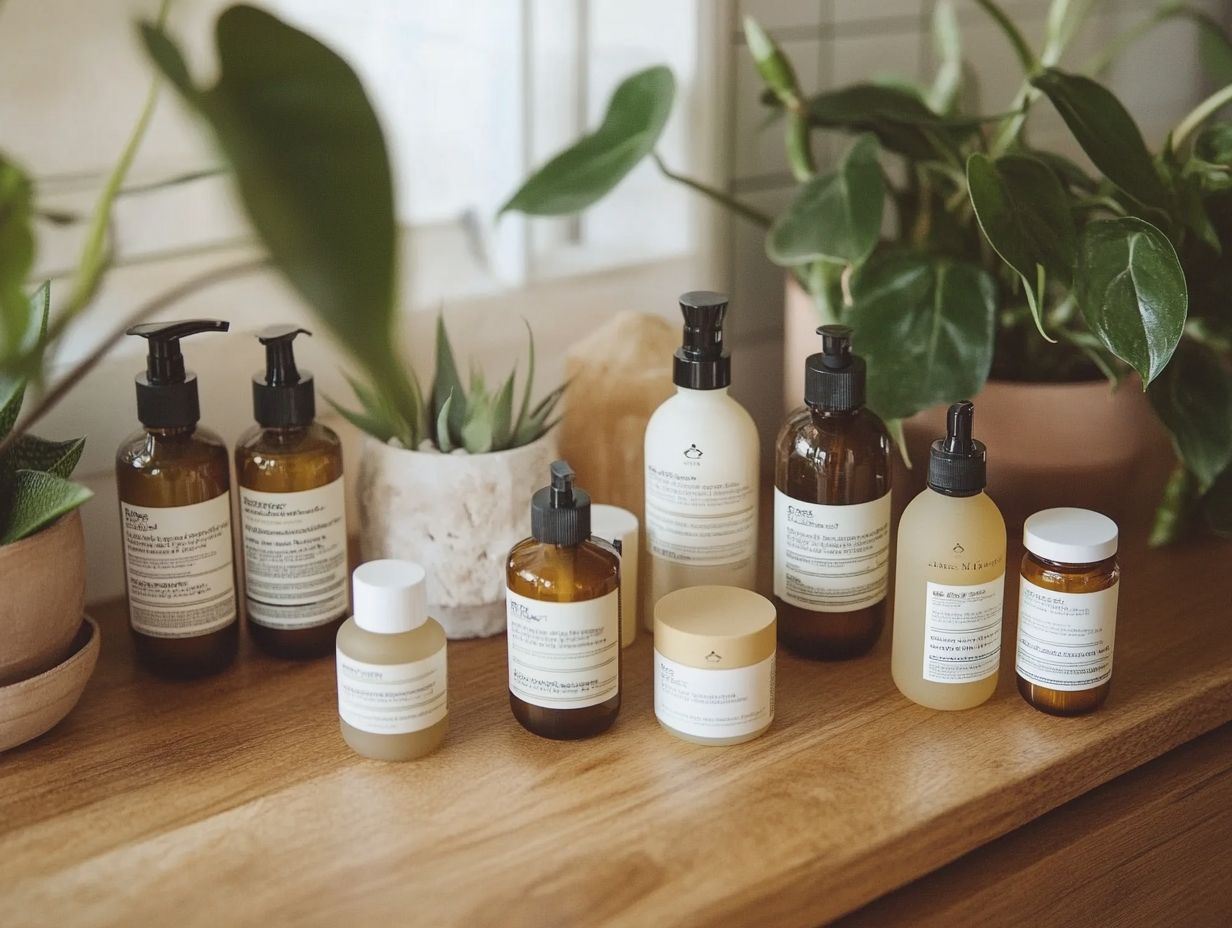
Implementing a step-by-step evening skincare routine specifically designed for acne-prone skin can significantly enhance my overall skincare strategy.
By thoughtfully combining cleansing, treatment, and hydration, I can effectively combat breakouts and work toward a clearer complexion. I start by using a gentle cleanser formulated for acne-prone skin, which helps remove dirt, makeup, and excess oil from the surface. After cleansing, I apply a suitable toner to balance my skin’s pH levels and prepare it for the subsequent treatment steps.
“`html
- Next, I target stubborn blemishes with topical medications like benzoyl peroxide or salicylic acid.
- To ensure my skin remains hydrated overnight, I seal in moisture with a lightweight, non-comedogenic moisturizer. For more information on how to create a skincare routine tailored for acne-prone skin, check out this Building a Skincare Routine for Acne-Prone Skin.
“`
By emphasizing the importance of hydration while utilizing the right treatments, I create a harmonious routine that contributes to healthier skin over time.
Additional Tips for Managing Acne-Prone Skin
Along with maintaining a structured skincare routine, I find that implementing additional strategies for managing acne-prone skin can lead to notable improvements in both skin health and appearance.
“`html
Factors such as diet and lifestyle are critical in acne management, as certain foods may trigger breakouts or exacerbate inflammatory conditions. For more information on how to effectively manage acne, check out Building a Skincare Routine for Acne-Prone Skin.
“`
Furthermore, being aware of common skincare mistakes to avoid allows me to make more informed choices, ultimately contributing to clearer skin.
Diet and Lifestyle Factors
I recognize that diet and lifestyle factors play a crucial role in managing acne, as certain foods and habits can significantly influence oil production and skin hydration.
Specifically, I find that incorporating foods rich in antioxidants, omega-3 fatty acids, and essential vitamins can contribute to achieving a healthier complexion. For example, including leafy greens, berries, and fatty fish in my diet provides vital nutrients that help counteract inflammation and support skin repair.
On the other hand, I am aware that high glycemic index foods, such as sugary snacks and white bread, may worsen acne by causing spikes in insulin levels and increasing oil production. Additionally, maintaining proper hydration is essential; drinking enough water helps flush out toxins and keeps my skin looking plump.
By adopting a balanced diet, engaging in regular exercise, and ensuring adequate sleep, I can further enhance my skin health, reduce breakouts, and promote a clearer, more radiant appearance.
Common Mistakes to Avoid
Being aware of the common mistakes to avoid when managing acne-prone skin can significantly enhance the effectiveness of my skincare routine.
For instance, I often see individuals falling into the trap of over-cleansing, mistakenly believing that scrubbing their face aggressively will eliminate excess oil and breakouts. In reality, this approach can lead to irritation and further flare-ups.
Similarly, using harsh products that contain alcohol or synthetic fragrances can disrupt the skin’s natural barrier, worsening acne issues. I understand the critical importance of hydration; neglecting to moisturize can prompt the skin to go into overdrive, producing even more oil.
By recognizing these pitfalls and following expert acne advice, I can cultivate a more effective skincare approach that promotes a clearer and healthier complexion.


